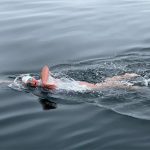Do the test of time
The Amateur Swimming Association is currently running its annual T30 challenge for masters swimmers. It’s open until 31 January so if you want to take part, you need to hurry up.
T30 has been around for years. Coaches have long used it as a test to measure swimmers’ aerobic fitness and to track their progress over time. I’ve also seen it used as the basis to set target swim speeds for training purposes.
It’s a simple test to describe: swim as far as you can in 30 minutes. But it’s not so easy to do, or at least to do well.
For the T30 to be a valid measure of your aerobic fitness, it’s supposed to an honest best effort, which means you have to work at your maximum sustainable speed. It’s also a test of your pace judgement and pacing skills. If you go too fast in the first five minutes the following 25 minutes will be tough. Psychologically, for me and for several other swimmers I’ve spoken to, swimming as far as possible in a fixed amount of time feels much harder than trying to swim the same distance as fast as possible.
Logically, that doesn’t make sense. An experienced swimmer could probably predict how far they will swim in 30 minutes to within a few metres. In theory, they could set themselves the goal of swimming that distance and get on with it.
In practice, it just doesn’t seem to work quite like that.
If you were to swim a fixed distance, say 2000m, as fast as possible, you would pace your effort so that your final metres are the limit of what you could do at that speed. But when you swim for a fixed amount of time it’s much harder to know exactly when the end is coming. Looking at a watch is impractical and not all pool pace clocks have a minute hand you can keep an eye on. Even if they do you will at best only catch occasional and blurred glimpses of it. You want to swim as fast as possible, reach the end totally exhausted but make sure you don’t blow up too soon, all without exactly knowing when the end will be. It’s a strange kind of self-imposed torture.
Open water swimmers though could see it as a kind of mental training. As we saw in our ‘Ask the Experts’ section in the Feb/Mar 2014 issue of H2Open Magazine, mental strength is a key factor for long distance swimming success, and mental strength can be trained like physical strength. In a long distance open water swim, especially one like the English Channel with strong tidal influences, you could find yourself not knowing how far you still have to swim nor how long it will take you yet you have to keep going. Swimming with that level of uncertainty can be mentally taxing. Doing a T30, despite being relatively brief, can help you prepare for this.
If you do try it, here are a few tips:
1) Start at a controlled pace and try to establish good rhythm and technique
2) Estimate how far you will swim and count your lengths (if you can). This will help with pacing. Add a few lengths and set that as your target.
3) As you tire, keep your focus on technique rather than how you feel. For example, focus on smooth exhaling throughout the stroke or keeping your elbows high.
4) You will probably feel like giving up. It’s normal. Keep focused on your overly optimistic target. That way you’ll be disappointed when time’s up.
5) Congratulate yourself when you finish, do an easy cool-down swim and celebrate with cake.
Find out more about the T30 at http://www.swimming.org/britishswimming/masters/t-30-challenge/







